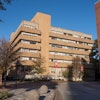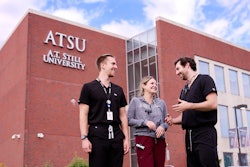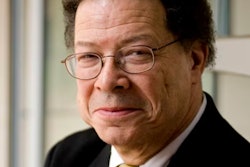Cities across the nation are struggling with difficult economic decisions and cutting critical services. But urban-serving universities are playing an increasingly important role in helping to fill in the gaps. In the past 10 years, many universities have become engaged in real estate development and community revitalization projects that, in some cases, have led to extraordinary levels of urban renewal.
“What we’ve seen over the past several years are more university leaders developing very concerted strategies for how they can be more engaged in their communities,” says Jennifer Vey, a fellow at the Brookings Institution’s Metropolitan Policy Program.
This summer, Rep. David Wu (D-Ore.) introduced legislation that aims to promote greater participation by universities in rebuilding neighborhoods and attracting businesses and services to their surrounding communities. The Urban University Renaissance Act of the 21st Century (H.R. 5567) “provides assistance to universities to help them serve as leaders in rebuilding neighborhoods and attracting businesses and services to urban communities and regions,” Wu says. In addition, it would help universities develop local and regional partnerships to address disparities in public school education, health, housing and environmental quality.
According to “Urban Universities as Anchor Institutions: A Report of National Data and Survey Findings” by the Coalition of Urban Serving Universities, the average urban-serving university spends $445 million annually on wages and salaries in its communities, and urban research universities spend $6 billion each year on public service programs and projects. In addition, these institutions employed 1 million full-time staff members in 2006-07.
Wu’s bill is made up of several elements and is not expected to pass Congress as a whole. But advocates widely believe that at least some of the components are strong enough to pass on their own or be folded into other legislation or into federal agency budgets.
“It is really what’s referred to as an omnibus act, which states a big idea—big like the Land Grant Bills, the GI Bill or Pell Grants—as a way to infuse a better quality of life into our urban communities,” says Dr. Nancy Zimpher, chancellor of the State University of New York and chair of the Coalition of Urban Serving Universities. “It will set in motion a series of potential appropriations that could markedly improve the quality of life of our urban communities.”
The bill calls for the re-establishment and expansion of the competitive grant program of the Department of Housing and Urban Development’s Community Outreach Partnership Centers (COPC). The grants help universities build partnerships with their neighboring communities and align teaching, research and services with local needs and expectations. For example, the University of Akron in Ohio used COPC funding to help form the University Park Alliance. Working in partnership with the City of Akron, Summa Health System, community leaders, nonprofits and private companies, the Alliance helped revitalize a 50-block area. It created 1,000 new jobs and 80 housing units and attracted more than $300 million in private investment and $52 million in public funding.















